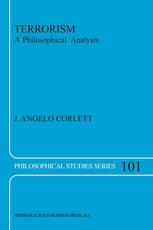

Most ebook files are in PDF format, so you can easily read them using various software such as Foxit Reader or directly on the Google Chrome browser.
Some ebook files are released by publishers in other formats such as .awz, .mobi, .epub, .fb2, etc. You may need to install specific software to read these formats on mobile/PC, such as Calibre.
Please read the tutorial at this link: https://ebookbell.com/faq
We offer FREE conversion to the popular formats you request; however, this may take some time. Therefore, right after payment, please email us, and we will try to provide the service as quickly as possible.
For some exceptional file formats or broken links (if any), please refrain from opening any disputes. Instead, email us first, and we will try to assist within a maximum of 6 hours.
EbookBell Team

5.0
58 reviewsThis book is the culmination of over 15 years of research on terrorism, secession, and related concepts such as the obligation to obey the law, pacifism, civil disobedience, non-violent direct action, political violence, revolution, and assassination. It is sincerely hoped that the content of this book is construed as an ethical and philosophical attempt to advance human understanding of some of life’s most intractable problems, namely, terrorism and more generally, political violence. This book is proffered as a propadeutic to further study of these issues and is not to be interpreted as the author’s final word on them. For the pursuit of truth and avoidance of error is never wholly complete, but at best a life-long process of continual reflection, analysis and argument. And it will please the author of this book if it brings even a modicum of knowledge to the difficulties it investigates. Some of the chapters of this book have been published or have otherwise experienced the critical assistance of various public academic forums, and I am sincerely grateful to those who have shaped my thinking about terrorism and its related concepts. Among those who have provided critical and helpful insights concerning various sections of the contents of this book are: David Copp, Richard Falk, Joel Feinberg, Richard W. Miller, and Thomas Pogge.